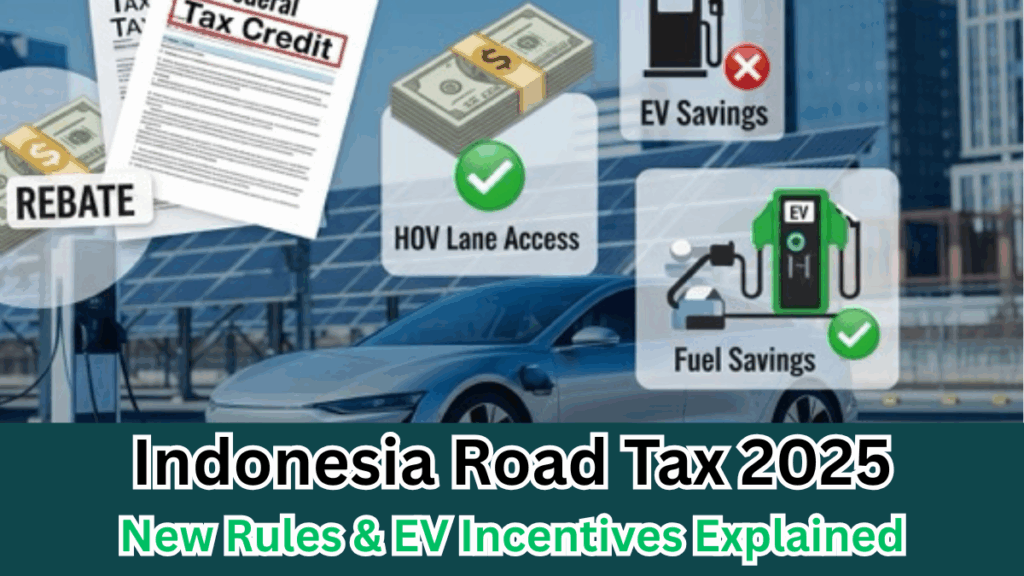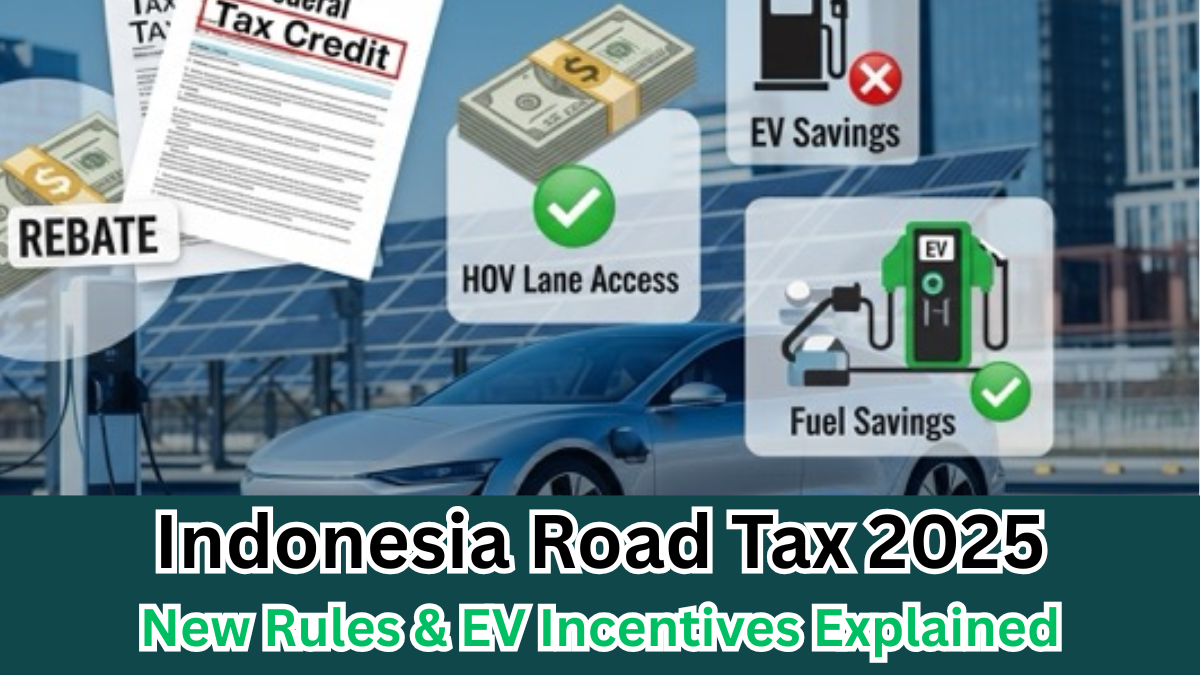Indonesia is accelerating its journey toward a greener future with the introduction of the Indonesia Road Tax 2025 and revamped New Vehicle Tax Rules. These changes aim to make electric vehicles (EVs) more accessible and encourage sustainable transportation.

What’s New in Indonesia Road Tax 2025?
1. Zero Tax for Electric Vehicles (EVs)
In a significant move, the Indonesian government has set the Motor Vehicle Tax (PKB) and Transfer of Motor Vehicle Fee (BBNKB) for battery electric vehicles at 0%. This applies to both locally produced and imported EVs, provided they meet local content requirements. However, converted vehicles from fossil fuels to electric are excluded from this benefit.
2. Luxury Goods Tax (LGT) Exemption
EVs are exempt from the Luxury Goods Tax (LGT) under the Ministry of Finance Regulation No.12/2025. This regulation aims to reduce the cost of EVs and promote their adoption among consumers.
3. Value-Added Tax (VAT) Reduction
The VAT on EVs has been reduced from 11% to 1% for domestically produced battery electric vehicles (KBLBB) that meet a 40% local content requirement. This incentive is part of the government’s effort to make EVs more affordable and stimulate local manufacturing.
EV Incentives: Driving the Green Revolution
Key EV Incentives for 2025
| Incentive Type | Details |
|---|---|
| VAT Reduction | 1% VAT for EVs meeting local content requirements |
| Luxury Tax Exemption | 0% LGT for EVs under Ministry of Finance Regulation No.12/2025 |
| Motor Vehicle Tax Exemption | 0% PKB and BBNKB for qualifying EVs |
| Import Duty Exemption | 0% import duty for EVs meeting specific criteria |
| Government Support | 10% VAT borne by the government for qualifying EV deliveries in 2024 |
These incentives are designed to make EVs more affordable and encourage both consumers and manufacturers to embrace electric mobility.
Impact on New Vehicle Tax Rules
The New Vehicle Tax Rules in 2025 focus on promoting low-emission vehicles. By offering tax exemptions and reductions for EVs, the government aims to:
-
Encourage EV Adoption: Making EVs more financially attractive to consumers.
-
Stimulate Local Manufacturing: Supporting domestic production of EVs and components.
-
Reduce Carbon Emissions: Contributing to Indonesia’s environmental goals.
-
Attract Foreign Investment: Positioning Indonesia as a hub for the EV industry.
These measures align with Indonesia’s broader strategy to reduce its carbon footprint and promote sustainable development.
Frequently Asked Questions (FAQs)
1. Are these tax incentives applicable nationwide?
Yes, the tax exemptions and reductions apply across Indonesia, including major cities like Jakarta and Bali. However, local regulations may vary, so it’s advisable to check with regional authorities.
2. Do I need to register my EV to avail of these incentives?
Yes, to benefit from the tax incentives, your EV must be registered and meet the local content requirements specified by the government.
3. Are hybrid vehicles eligible for these tax benefits?
Yes, hybrid vehicles are eligible for certain tax incentives, including VAT reductions and LGT exemptions, provided they meet the necessary criteria.
4. How long will these incentives last?
The current incentives are set to continue through 2025. Future extensions or modifications will depend on government policies and market conditions.
Conclusion
The Indonesia Road Tax 2025 and New Vehicle Tax Rules mark a significant step towards a sustainable future. With attractive incentives for EVs, Indonesia is not only making electric mobility more accessible but also positioning itself as a leader in green transportation. Whether you’re a consumer or a manufacturer, now is the perfect time to embrace the electric revolution.
Click here to learn more
